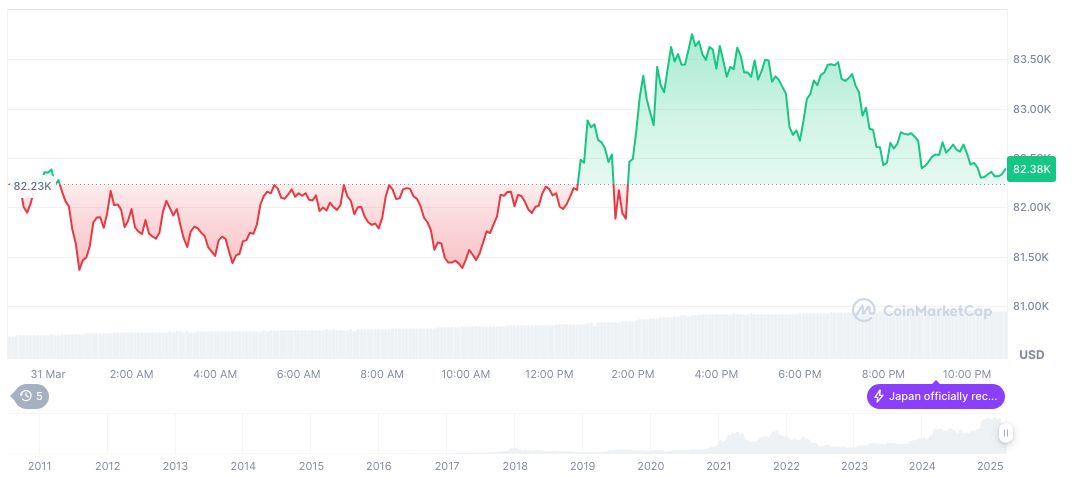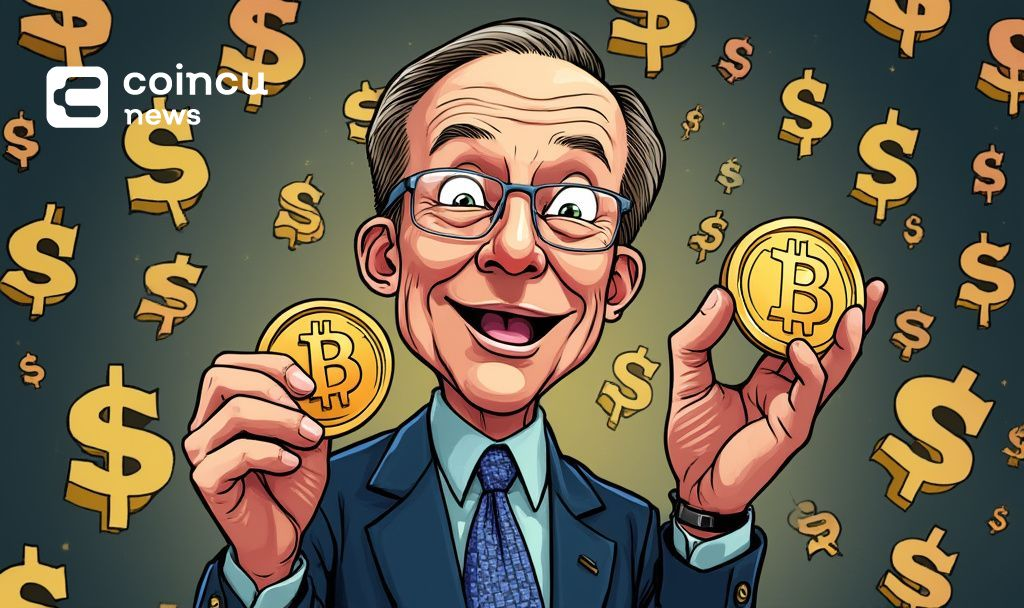 CaryptosHeadlines Media Has Launched Its Native Token CHT.
Airdrop Is Live For Everyone, Claim Instant 5000 CHT Tokens Worth Of $50 USDT.
Join the Airdrop at the official website,
CryptosHeadlinesToken.com
CaryptosHeadlines Media Has Launched Its Native Token CHT.
Airdrop Is Live For Everyone, Claim Instant 5000 CHT Tokens Worth Of $50 USDT.
Join the Airdrop at the official website,
CryptosHeadlinesToken.com
- Larry Fink warns of Bitcoin’s impact on the dollar.
- Cryptocurrencies could benefit if U.S. debt rises.
- Fink supports asset tokenization in financial systems.
Larry Fink, CEO of BlackRock, suggests in his annual letter that Bitcoin and cryptocurrencies could threaten the dollar’s global standing if the U.S. cannot control its debt.
This reveals potential shifts in the global financial landscape, impacting traditional financial systems and possibly benefiting digital assets like Bitcoin.
Bitcoin’s Role in Challenging U.S. Dollar’s Supremacy
Larry Fink’s letter underscores potential threats to the U.S. dollar from cryptocurrencies like Bitcoin due to growing national debt. Bitcoin’s increasing role as a hedge against dollar inflation emerges as a focal point, with BlackRock’s engagement in tokenization being emphasized.
Fink stressed that cryptocurrencies might undermine the dollar’s dominance if investors perceive them as safer havens against inflation. Moreover, he asserted that tokenization could democratize the financial system, providing efficiency and accessibility.
If the U.S. doesn’t get its debt under control, if deficits keep ballooning, America risks losing that position to digital assets like Bitcoin. – Larry Fink, CEO, BlackRock, Business Standard
Bitcoin Price Trends Amid Global Debt Concerns
Did you know? In 1989, the U.S. debt clock began ticking, highlighting a national debt surge that has since increased faster than GDP. This ongoing trend now raises questions about the dollar’s international supremacy, with cryptocurrencies like Bitcoin presenting significant alternatives.
Bitcoin, trading recently at $84,143.00 with a market cap of formatNumber(1669809178683.17,2), maintains strong market dominance at 61.19%. Recent price activities reveal mixed results: down in the previous 7 days by -3.18%, while showing a slight 24-hour gain of 3.18%, according to CoinMarketCap.


The Coincu research team reflects that main focus on Bitcoin’s rise may impact regulation with increased scrutiny and possible technological integration. Tokenization offers potential transformations, fostering accessibility and reducing financial barriers, but regulatory challenges will likely continue evolving.












